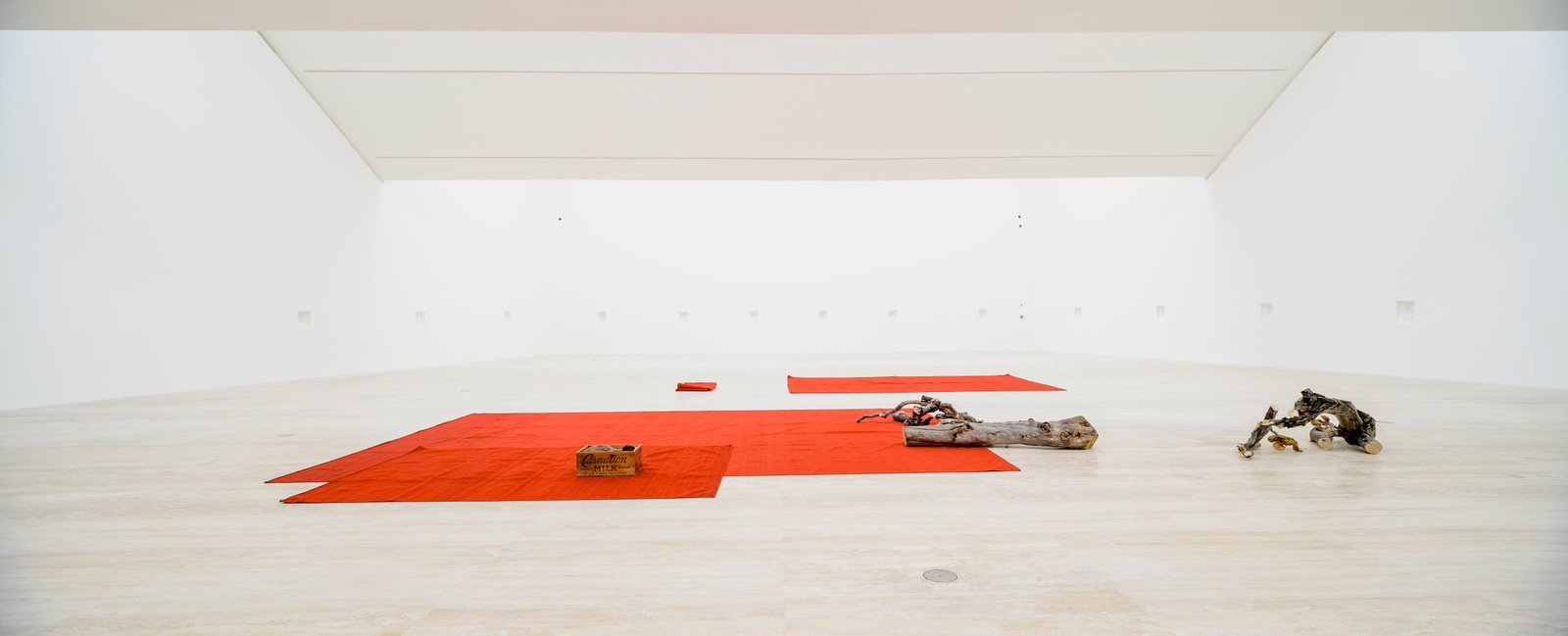
Danh Vo was born in Vietnam in 1975 and settled in Denmark with his family in 1979. Vo, now residing in Mexico City, has had solo exhibitions at museums and institutions such as The Renaissance Society, Chicago; the Solomon R. Guggenheim Museum, in New York; Kunsthalle Basel; Kunsthalle Friedericianum, in Kassel; and Kadist Art Foundation, in Paris.
Vo’s work explores the intersections of personal experience and major historical events, including the impact and mutations of Catholicism as it spread through colonization. His artworks reflect on the paradoxes inherent to the construction of identity. His use of objects evokes the historical circumstances that shape contemporary life: “I don’t believe that things come from within you. To me things come out of the continuous dialogue you have with your surroundings,” he has said.
Rocks are not simply there to be kicked at, desks to be thumped at…
—Bruno Latour, Dingpolitiks
Danh Vo الحجارة وادي [Wād al-ḥaŷara] takes its title from an Arabic expression meaning “river running through rocks.” This is a reference to the first time Vo (Vietnam, 1975) came to Mexico, when years ago he traveled to Guadalajara with his longtime friend Joseph M. Carrier, a retired US military analyst who had lived in Vietnam from 1962 to 1973. This relationship allowed Danh Võ to take a mediated approach to explore his country of birth and to appropriate thereby a series of historical moments and everyday situations that he had not experienced firsthand. But الحجارة وادي is not just a personal reference, it also signifies a new chapter in Vo’s work in that it examines the history of colonialism and its close ties to the dissemination of cultures and the assimilation of religions, going back in this case to the first Arab conquest of Spain and its later transposition to the “New World”. In other words, the show also refers to how the rise and fall of empires have a powerful impact on the social body and determine the cultural economies that make up our everyday lives.
In Danh Vo’s work, historical narratives mingle with personal, often autobiographical stories. Those elements that, at first glance, seem to be silent witnesses to history betray their false innocence: they are relics of a political time and a social space and, once removed from their original context, they become vulnerable and reveal how they played an active and irreversible role in the course of historical events, affecting the lives of millions. The works included in the exhibition refer to precise chapters in history like the Christian evangelization in South-East Asia, the spread of the Vietnam War and the artist’s family’s exile. But they also embody phenomena like cultural cross-contamination and the difficulties of reconciling two different contexts; the (more or less) failed attempts at resisting dominant ideologies, and the severe consequences of expansionism and industrialization. By tackling issues such as migration and displacements, the consequent multiplication of presents and the ensuing need for negotiation with the past come about, echoing the dismembering and disarticulation of bodies, and death as a means of expression that might end up signifying all of our actions.









